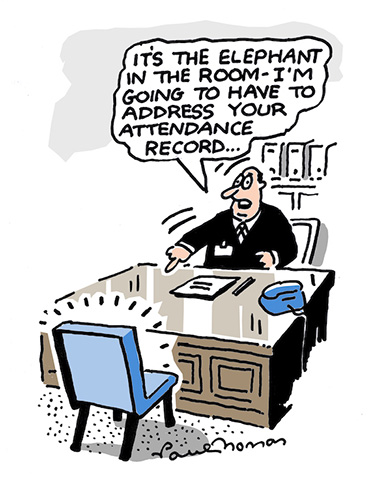Tipster: How to make appraisals work for everyone
Everyone hates appraisals, right? Keep it simple and focus on having an honest dialogue and you can banish cynicism and make appraisals something to look forward to.

1. Keep it simple
Don’t try to cover too many skills and competencies or set too many objectives. Keep the discussion structured by concentrating on the two or three main issues that you want to get across. If there are no performance concerns, look at the skills and attributes staff may need to develop in order to seek promotion.
2. Strike the right tone
Don’t suddenly adopt a formal tone for the appraisal meeting. That just puts people on the defensive and is not conducive to the truthful and meaningful conversation you’re looking for. Just stick to the same style of interaction you use in your day-to-day management. Think of the meeting as an opportunity for a constructive dialogue and to build a relationship with the people you manage.
3. Focus on development
While there’s always an element of performance management, appraisals should primarily be about finding a systematic way to developing people’s skills and competencies. In Scotland, for example, we’re moving towards a system that links appraisal to mandatory and statutory training. Use the appraisal process to check staff are up to date with the training required for their job and, if not, make a plan for completing it during the next year.
4. Keep objectives simple
It may not be necessary to set individual objectives for all staff; for many clinical staff, team-based objectives can work better. Keep people’s objectives manageable by focusing on only the most important aspects of their or the department’s work. Resolve disagreements over objectives by discussion, involving the ‘grandparent’ manager when necessary.
5. Keep your appointment
One of the main reasons for staff cynicism about appraisals is that managers often seem too busy to give them their full attention. Appraisals don’t need to be time-consuming if you keep it simple and focus on what really matters—it’s more important to have a meaningful discussion on the day than spend a lot of time on paperwork in advance. Avoid cancelling appraisal meetings unless it’s absolutely unavoidable.
6. Deal honestly with poor performance
When tackling poor performance, it’s important not to let things drift. Don’t wait until yearly or six-monthly appraisals to raise issues like poor behaviour, excessive absences or difficult relationships with colleagues. During appraisal meetings, concentrate on the positive things the individual can do to improve their performance or behaviour.
7. Avoid going formal too soon
Once you begin formal capability or disciplinary procedures, you’re closing off the appraisal route—and the possibility of resolving things by discussion more generally—in favour of an adversarial approach. Except for the most serious issues, such as gross misconduct or fraud, always try to resolve issues with an informal discussion—involving the line manager and ‘grandparent’ manager, if necessary—before involving HR or starting formal procedures.
8. Get the culture right
The effectiveness of your appraisal system reflects the working culture of your department. We’ve all experienced the quite different atmosphere in wards and departments where there’s a good manager who encourages open communication between staff. Appraisals will be much more effective in an environment where staff are fully engaged and can give and receive feedback all year round.
9. It’s a two-way conversation
Encourage staff to give feedback on the way they are managed and your own performance as a manager. Ask what more support you can give, particularly if there are performance issues to resolve. Although not directly linked to appraisal, staff engagement initiatives—like the iMatter system in Scotland, which encourages staff to report on how they are being managed and whether they are being listened to—help to foster the open and honest dialogue which makes appraisals most effective. Although impractical for most staff in large organisations, peer review and 360˚ appraisals can be useful tools for improving management at very senior levels, or in small organisations.
10. No surprises
The single most important piece of advice I can offer is: never use an appraisal to raise significant problems with performance or behaviour out of the blue. Always discuss such issues at the time they arise. Springing surprises at the appraisal meeting will destroy trust and ensure the discussion goes pear-shaped from the start.
Former senior NHS manager, Ian Reid is secretary to the Scottish NHS Terms and Conditions Committee.
Related News
-

Tipster: Working in the grey—how to manage uncertainty
Leadership coach and former senior detective Andy Cribbin gives his tips for managers on making effective decisions with limited information, whilst navigating the uncertainties of rapid change.
-

Tipster: How to survive a toxic workplace
Leadership coach Siobhan O’Reilly offers her tips on responding to toxic behaviour at work and how to protect your own health and wellbeing.
-

Tipster: How to manage new tech with a spring in your step
Digital and business change veteran Sue Carter offers her tips on how to seize the opportunities offered by new technology for the benefit of your colleagues and patients.